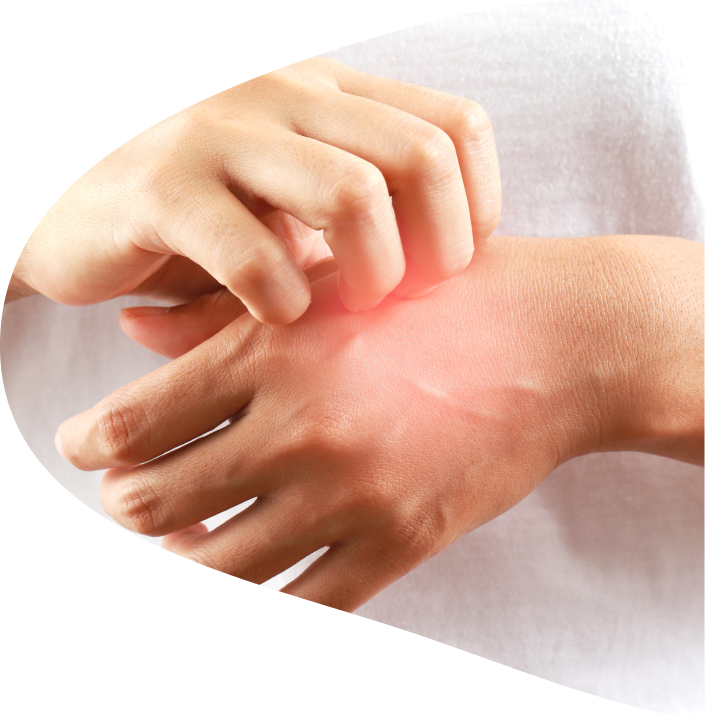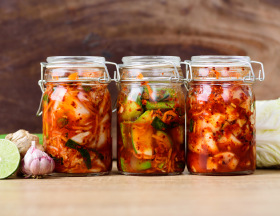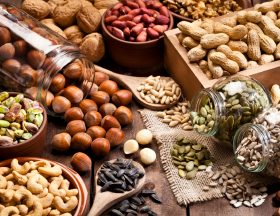Up to 24 million Americans suffer from one of the more than 80 known types of autoimmune diseases. Fortunately, there is now hope for sufferers thanks to the growing popularity of the Autoimmune Diet and its accompanying plan created by the Dietitian Group.
If you’re looking for answers about managing your autoimmune condition through dietary changes, our dietitians at Dietitian Group have the knowledge and experience to help. With dedication and perseverance, you could soon see positive physical and mental results when it comes to living happily with an autoimmune disorder.
What is an Autoimmune Disease?
Autoimmune disease is when the body’s immune system mistakenly attacks healthy tissues. This can lead to inflammation and damage throughout the body, including organs and joints. The symptoms of autoimmune diseases vary depending on the type but may include the following:
- Fatigue
- Joint pain
- Skin rashes
- Hair loss
- Digestive issues
Diet plays an essential role in managing autoimmune conditions, as certain foods can trigger or worsen symptoms while others can help reduce them. An autoimmune diet plan like the Autoimmune Protocol (AIP) or Autoimmune Disease Diet focuses on eliminating inflammatory foods while emphasizing nutrient-dense whole foods that support overall health and healing. Research has shown that following an AIP diet plan often leads to symptom relief for those with autoimmune diseases.


Is There a Link Between Nutrition and Autoimmune Disease?
Yes, there is a link between nutrition and autoimmune disease, and following the AIP diet may reduce symptoms of the autoimmune disease. Following the AIP diet means avoiding foods that trigger inflammation in those with autoimmune conditions and focusing on nutrient-dense, anti-inflammatory foods like fruits, vegetables, nuts, and seeds. Additionally, it involves consuming more healthy fats, which can be beneficial for reducing inflammation.
AIP recipes focus on whole food ingredients like fresh produce and proteins from grass-fed meats or wild-caught fish. It also excludes processed foods, dairy products, grains, legumes, and alcohol – all of which can contribute to inflammation in people with certain autoimmune conditions. By eliminating these potentially inflammatory items from your diet, you may improve your overall health and reduce flare-ups associated with your disease.
It’s essential to consult a dietitian or medical provider when starting any new diet or to change your eating habits – especially if you have an autoimmune condition. Working closely with a qualified dietitian who specializes in diets for autoimmune diseases will ensure that you get the right advice tailored to meet your individual needs. In addition, they’ll be able to guide how best to make dietary changes while maintaining adequate nutrition so you can reach optimal health outcomes.
What Are the Worst Foods for Autoimmune Diseases?
Diet is a significant factor in managing symptoms when living with an autoimmune disorder. Following an autoimmune protocol diet (AIP) can benefit those suffering from these conditions, as this type of eating plan aims to reduce inflammation and minimize exposure to specific triggers that could worsen the illness.
Processed and refined sugars are among the worst offenders for those with autoimmune disorders due to their ability to increase inflammation. Artificial sweeteners, for example, may cause gut dysbiosis, a condition linked to numerous health issues, including autoimmunity. Moreover, casein or whey proteins in dairy products like milk, cheese, and yogurt may exacerbate digestive problems associated with autoimmune diseases.
Soy-based products are also known to trigger flares in those who suffer from inflammatory illnesses. These include edamame beans, tofu, and tempeh, amongst others – all of which are best to avoid on an AIP diet. In addition, eating gluten-free grains such as oats and quinoa is generally discouraged while following this nutritional program; however, some individuals may find that they tolerate them better than other wheat or barley products. Ultimately, knowing what is not allowed on an AIP diet food list is just as important as understanding what you can safely eat!

What is an Autoimmune Protocol Diet?
Autoimmune Protocol (AIP) Diet focuses on healing the gut and reducing inflammation in the body by eliminating certain foods known to trigger autoimmune disease symptoms. The AIP diet also emphasizes whole and unprocessed foods, nutrient-dense meals, and snacks. AIP foods that you should avoid and include in your daily lifestyle are:
The AIP Diet eliminates the following:

Grains

Dairy

Eggs

Coffee

Alcohol

Processed Sugars

Nuts & Seeds
The AIP Diet includes:

Grass Fed Beef

Wild Caught Seafood

Organ Meats

Fermented Probiotic Foods

Starchy tubers such as sweet potatoes or cassava flour

Coconut products like oil or milk

Nuts and seeds in moderation

Herbal teas

Bone broth made with organic bones/organs/vegetables
For those who want to follow a more strict version of the AIP diet, a “strict paleo” option eliminates any food not included in the basic Paleo template. In addition, it removes additional items such as coffee and chocolate.
A sample meal plan could include a breakfast smoothie with banana, blueberries & almond butter + egg muffins with spinach & mushrooms for lunch + roasted veggies & salmon for dinner.
This diet is known to be effective in helping people manage their autoimmunity, but it can be hard to stick to due to its restrictive nature, so consult with your healthcare provider before starting it.
Please remember: While protein plays a significant role in an Autoimmune Protocol (AIP) diet, the amount required varies based on factors unique to each individual and their specific health needs. Your dietitian will provide personalized guidance throughout your AIP diet journey, ensuring all your nutritional requirements are being met for optimal health.


Can You Control An Autoimmune Disease With Diet?
The question of whether you can control an autoimmune disease with diet is a hotly-debated one. Modifying your diet to reduce inflammation, improve digestion, and balance hormones could help manage the symptoms of many autoimmune conditions. However, it’s important to note that while dietary interventions may be helpful in some cases, they are not a cure for any autoimmunity-related disorders and should always be under medical supervision.
When looking into the best diets for autoimmune diseases, several popular plans range from low FODMAP diets to anti-inflammatory plans such as the Autoimmune Protocol (AIP) Diet. The AIP diet has become increasingly popular because it emphasizes nutrient-dense foods like fruits and vegetables, which help reduce inflammation. In addition, for those living with Hashimoto’s thyroiditis, the AIP diet may relieve symptoms by eliminating inflammatory foods like gluten, dairy, and processed sugar.
While comparing anti-inflammatory diets versus autoimmune disease diets depends on each person’s needs. For example, a doctor has prescribed medication or another treatment plan, but supplementing dietary changes can provide additional support in managing symptoms associated with autoimmunity. Consulting with a registered dietitian might be beneficial in developing an individualized meal plan tailored towards reducing inflammation while meeting all nutritional requirements necessary to maintain good health.
Autoimmune Disease & Dietitian Support
Understanding that autoimmune diseases are complex and can be challenging to manage is essential. Still, you can improve your quality of life through diet changes with the support and guidance of your dietitian. Diet plays an integral role in managing your symptoms. It’s also important to remember that everyone has different dietary needs with autoimmune conditions. Therefore, it’s best to work closely with a Registered Dietitian at Dietitian Group, specializing in autoimmunity, for personalized nutrition guidance tailored specifically for you. They will provide evidence-based advice specific to your needs, so you feel supported throughout your journey toward better health!
No matter where you are on your path toward improved well-being through nutrition and lifestyle changes related to autoimmune disease management, you can take control of your body’s own healing abilities and make positive steps forward to improve the overall quality of life. Start today by scheduling with one of our Autoimmune Dietitians at Dietitian Group!
